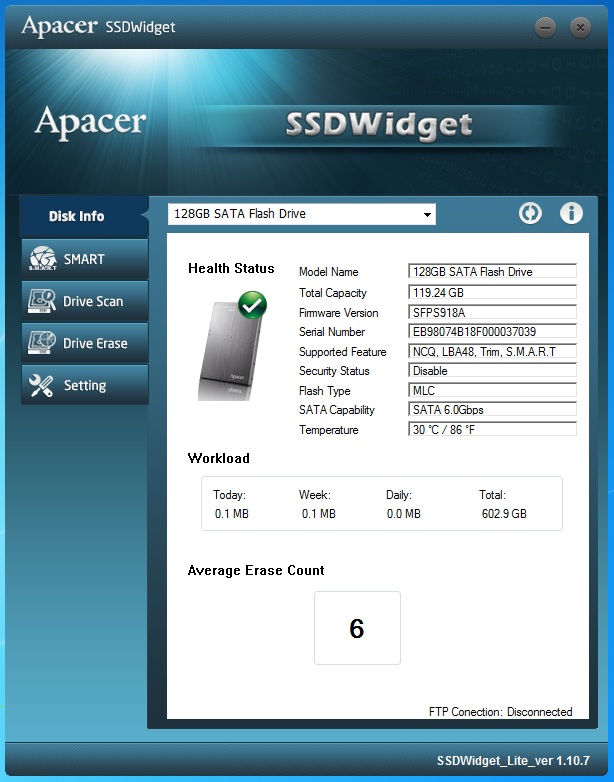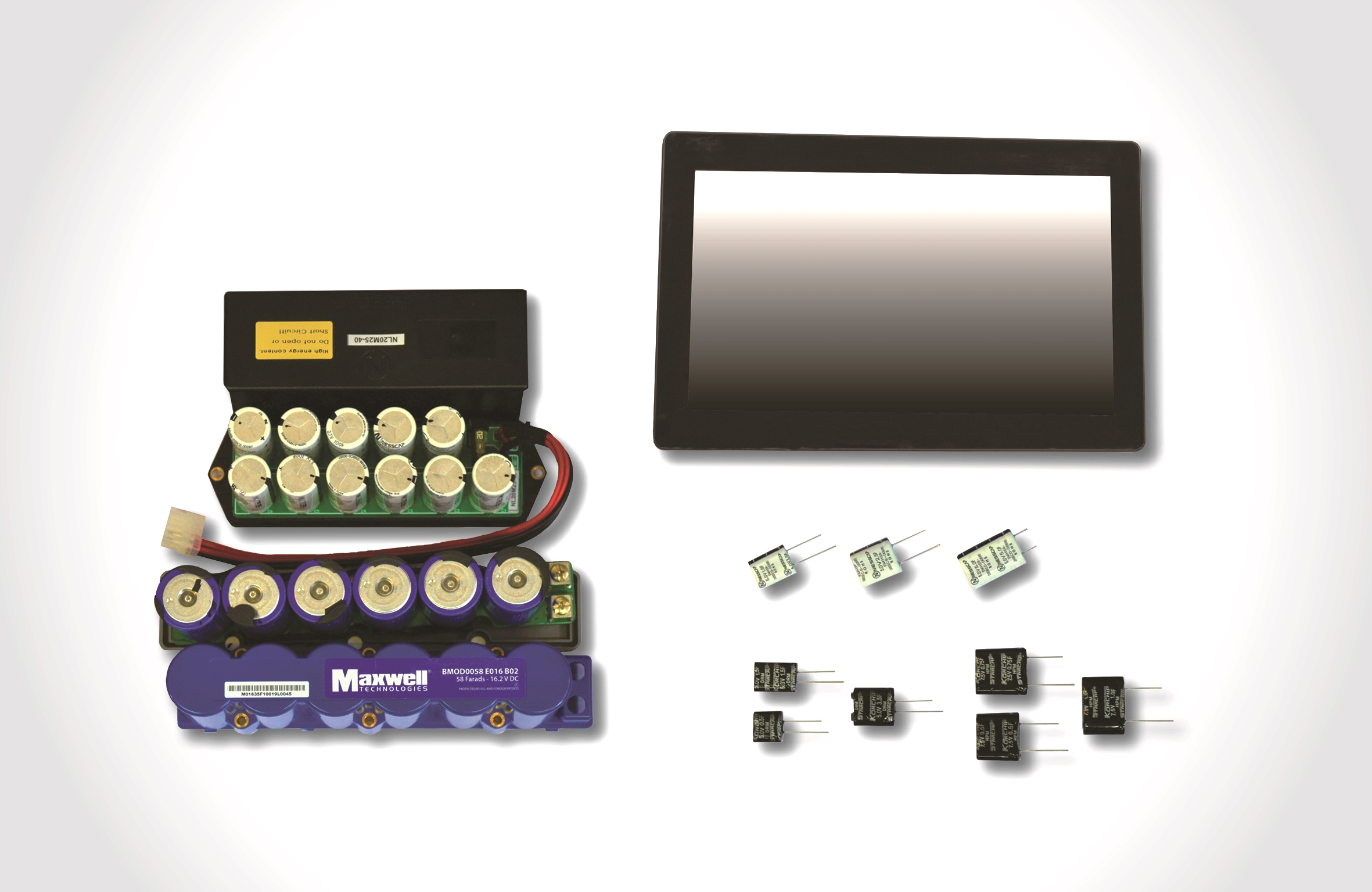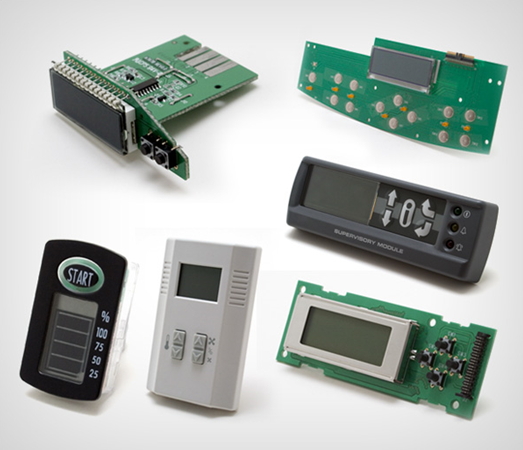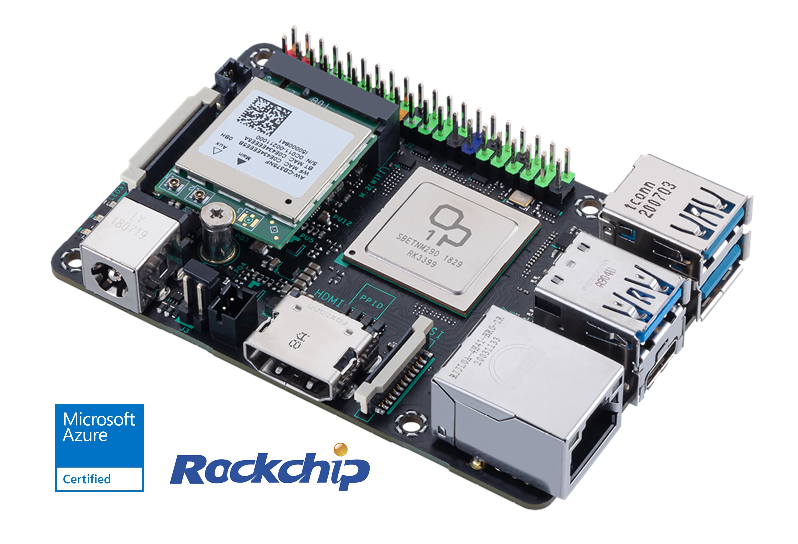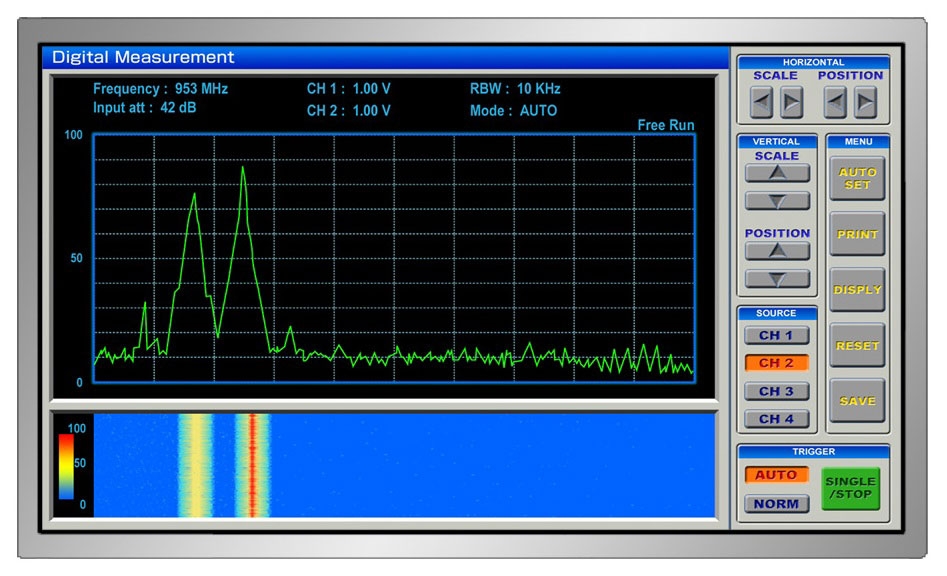Apacer SSDWidget real-time monitoring software beyond S.M.A.R.T.
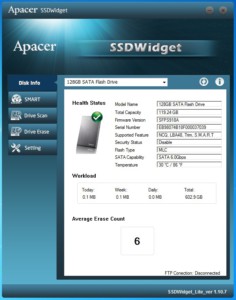 Apacer SSDWidget is a comprehensive disk monitoring and maintaining utility. Designed with the concepts of S.M.A.R.T., SSDWidget can monitor SSD’s health-related information and provide SSD status for SSD lifetime monitoring and workload analysis.
Apacer SSDWidget is a comprehensive disk monitoring and maintaining utility. Designed with the concepts of S.M.A.R.T., SSDWidget can monitor SSD’s health-related information and provide SSD status for SSD lifetime monitoring and workload analysis.
Most traditional hard drives and Solid State Drives (SSDs) adopt S.M.A.R.T (Self-Monitoring, Analysis, and Reporting Technology), which is the optimal technology for single PC, to check the drive’s status at any time for analyzing and predicting the timing to replace the drive, such as temperature, usage time, and erase times. However, with the coming of cloud computing era, 3A management (Anytime, Anywhere, Any device) are required for managers to monitor cloud storage device, while traditional S.M.A.R.T. tools still function for monitoring single PC only. Once the user is not at the scene, the “golden hour” for data rescue would slip away especially in situations such as unexpected tampering, power supply abnormality, interface destruction.
Apacer has innovated a comprehensive disk monitoring and maintaining utility called SSDWidget, a real-time monitoring and diagnosis software tool supporting both Windows and Linux OS., including features of S.M.A.R.T., disk erase, and mobile monitoring. There is also an App for SSDWidget, enabling users to monitor drive status from a smart mobile device.
SSDWidget is designed to support SSDs with currently mainstream SATA and PCIe interfaces. Manager may connect several SSDs within the enterprise together, conduct instant monitoring via web browser or mobile App, and integrate attributes like erase times, unpredicted power failure times, and data written in the system into cloud monitoring content. Meanwhile, users can customize the update cycle of report data themselves to ensure real-time understanding of the status of all SSDs.
S.M.A.R.T. function is a major part of SSDWidget that provides SSD status for SSD lifetime monitoring and workload analysis. There are significant drive status attributes including initial bad block count, total later bad block count, maximum erase count, average erase count, power on hours and power cycle, which serve as helpful reference for device workload and failure prediction. Regular scans may ensure whether there is any data damage.

